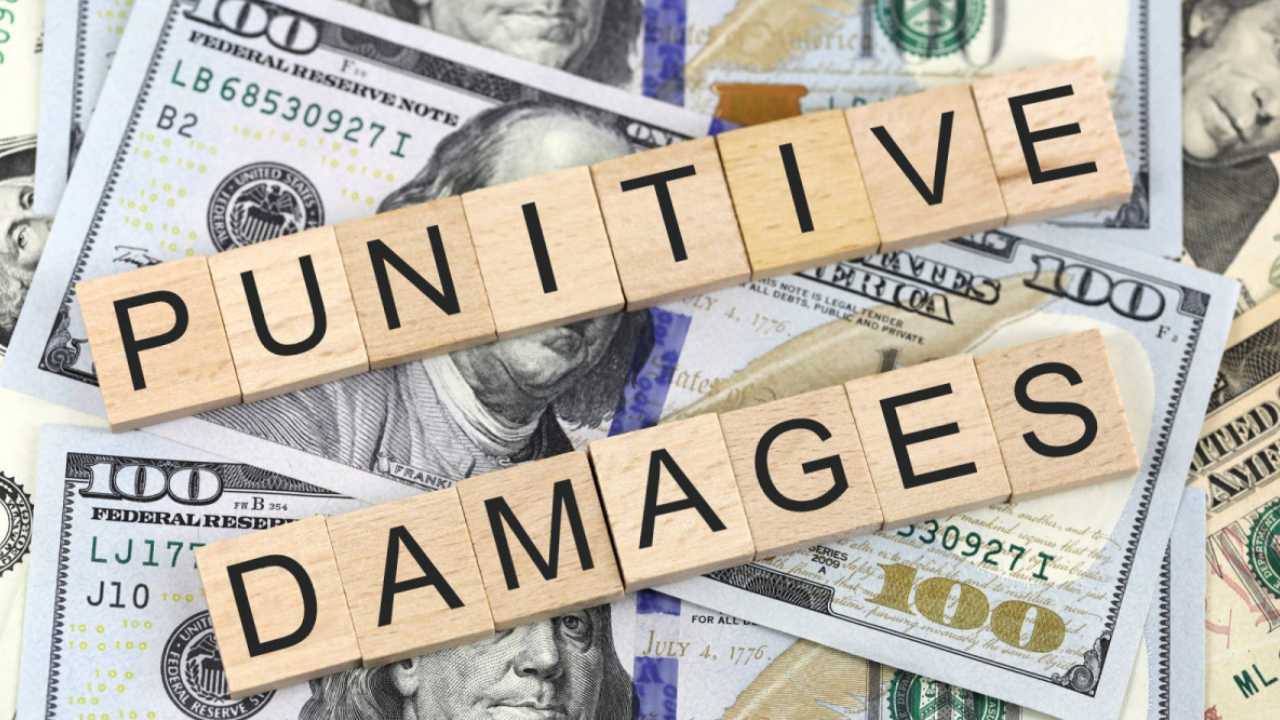

Sponsored Ads

Sponsored Ads

One particular type of compensation in personal injury lawsuits is punitive damages. Instead of compensating victims for lost wages, medical expenses, or pain and suffering, punitive damages aim to punish egregious behavior and deter future instances of the same kind.
It is essential for individuals traversing the intricate terrain of personal injury law to understand when and how punitive damages can be claimed. We will discuss the circumstances under which a victim may be eligible to file for punitive damages.
What Are Punitive Damages?
Also known as exemplary damages, punitive damages serve the dual purpose of warning others and punishing the guilty party for careless or evil actions. Courts do not award punitive damages in simple negligence or unintentional injury situations. Instead, these damages are reserved for situations involving willful misconduct, fraud, gross negligence, or other extraordinary circumstances.
Legal Standards for Awarding Punitive Damages
The threshold for pursuing punitive damages varies depending on jurisdiction, but most states impose a high standard. The plaintiff must show that the defendant's actions showed a deliberate disregard for other people's safety and well-being. As punitive damages are not automatically considered in personal injury cases, victims should consult with a personal injury attorney to determine if their case meets the necessary criteria. Legal counsel can evaluate the evidence, assess the defendant's conduct, and navigate state-specific laws governing punitive damages.
Common Scenarios Where Punitive Damages May Apply
- Drunk or Impaired Driving Incidents: Drivers under the influence of substances such as alcohol or drugs who cause an accident may be subject to punitive damages. The reasoning is that driving while impaired reflects a blatant disregard for the safety of others on the road.
- Defective Products: Manufacturers who knowingly release unsafe products or hide risks associated with their goods can face punitive damages. Courts aim to hold companies accountable for prioritizing profits over consumer safety.
- Intentional Harm or Violence: If a person causes injury through deliberate acts, such as assault, punitive damages may be appropriate. Courts view these situations as clear examples of malicious intent deserving of severe penalties.
- Egregious Medical Malpractice: While most medical malpractice cases involve standard negligence, punitive damages may apply if a healthcare professional acts recklessly or fraudulently, such as performing unnecessary surgeries for financial gain.
The Burden of Proof in Punitive Damage Claims
Many states require "clear and convincing evidence" that the defendant's actions were particularly harmful or egregious. This criterion is less vital than the "beyond a reasonable doubt" level in criminal trials. Still, it is more rigorous than the criterion of "preponderance of the evidence" typically used in civil cases.
Limitations on Punitive Damages
While punitive damages can result in significant financial awards, courts often impose limits to ensure fairness. Some states have caps on punitive damages, restricting them to a specific amount or a multiple of the compensatory damages awarded.
Punitive damages should be commensurate with the injury inflicted, according to the U.S. Supreme Court, which has declared that significant awards may be unconstitutional.
Importance of Understanding State-Specific Laws
Each state has its own rules governing punitive damages. Some states, such as California and Texas, allow punitive damages under specific conditions, while others, like Nebraska, prohibit them entirely in personal injury cases. Navigating these legal nuances requires a detailed understanding of state statutes and court precedents.
Final Thoughts
Punitive damages are not available in every personal injury case and are generally reserved for the most egregious examples of misconduct. Whether a case qualifies often depends on the specific facts, the defendant's behavior, and applicable state laws. It is important to get in touch with an experienced legal professional to deal with these challenges and win fair compensation.
Sponsored Ads

Sponsored Ads

